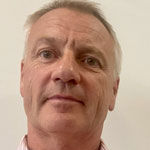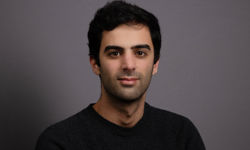
First there was the portentous ‘News Futures 2035 initiative’, led by researchers from the University of Central Lancashire (UCLan) followed swiftly by the Reuters Digital News Report from Oxford University, telling us that ‘news avoidance’ is on the up in the UK.
Next up was the ‘Media Futures Conference 2023’ to celebrate the 20th Anniversary of the London School of Economics’ Department of Media and Communications, so it’s not difficult to see that it is ‘The Academy’ that it is showing ‘The Industry’ where things are headed.
All this thoughtful stuff about what is around the corner is mainly driven by academics, think tanks and other people – think Reuters and Google – who have a vested interest in the future of journalism. Not much from the news industry, though.
Perhaps Ian Wylie, driving force behind the Civic Journalism Lab at Newcastle University is right when he reflects the view from the newsroom: “We need to get tomorrow’s paper out. That’s all we care about. We say, oh, next week we’ll look at that, or next week we’ll try to do a bit of training, or really, next month we ought to sit down and think about what we’re going to do in five years’ time. But we never do it because there’s always a page to fill. There’s always a story to write.”
Since October 2022, more than 300 experts from within and outside the news industry have collaborated under the News Futures 2035 initiative to look at creating a better future for the provision of trustworthy public-interest news.
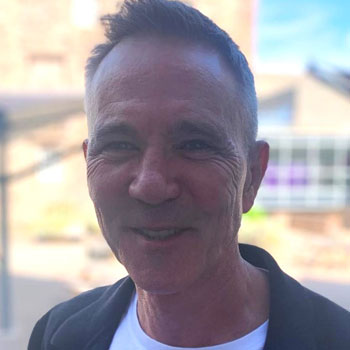
Dr François Nel, Reader in Media Innovation & Entrepreneurship at UCLan and the driving force behind the project, emphasised the importance of a holistic and inclusive approach to addressing the challenges faced by public-interest news.
“During the process, the participants and research team came to realise that efforts to tackle the challenges faced by public-interest news are more likely to succeed if they are informed by a comprehensive understanding of the issues, inclusive of diverse perspectives, and delivered in a timely and joined-up manner,” said Dr Nel.
He contends that academics are often at the forefront of new research in areas such as artificial intelligence, data science, and audience engagement and claims this research can help news publishers to develop new products and services that meet the needs of their audiences.
Says Dr Nel: “Academia has played a vital role in the development of the news industry. As the media landscape continues to change and the challenges ramp up, the benefits that academia can offer will become even more important.”
The Digital News Report is a research publication of the Reuters Institute for the Study of Journalism at Oxford University – “With core funding from Thomson Reuters Foundation” – and is also a collaboration with other academic partners.
Alan Rusbridger, former editor-in-chief of the Guardian, is pulling the strings as chairman of the Foundation steering committee and it has a global reputation as an authority on where journalism is headed.
Among the findings of the report was a lesson for publishers everywhere following the shocks of the last few years, including the war in Ukraine and the Coronavirus pandemic. “This has accelerated structural shifts towards more digital, mobile, and platform-dominated media environments, with further implications for the business models and formats of journalism,” says the report.
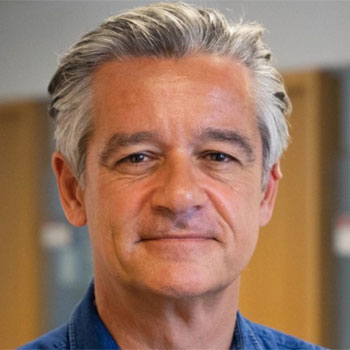
Since 2006, Charlie Beckett has watched it all unfold, or indeed unravel, from his position as director of Polis, the London School of Economics’ international journalism institute. He began his career on the great alma mater that is the South London Press and ended it as a programme editor at Channel 4 News where he covered major stories such as the terrorist attacks on New York and London.
As someone who has had feet in both camps, he feels that journalism has misreported academic research very often. “Journalists don’t always report everything right and I think that helps foster a sort of suspicion amongst academics who, like everyone else, want to be understood and want to be treated nicely, and journalism doesn’t always do that,” says Beckett.
“Academics don’t always have the time or the skills to deal with media. And they often feel not just misrepresented, but they feel that their time’s been wasted. I think that’s partly because journalists are often a bit lazy. They won’t do the research first. They’ll just expect academics to do it for them.”
Beckett describes himself as a phenomenologist – “my theoretical approach is a mixture of sociology, politics, practice” – and thinks that journalism could learn from the rigour of proper academic research “instead of getting a few quotes and a few vox pops and saying that’s the truth”.
“Journalism is doing much more of this now, looking at the data, trying to understand long-term trends, trying to understand context, being more critical in the thinking, which is very good for journalism.”
Dr Margaret Hughes is chair of the Association for Journalism Education – an umbrella group for journalism academics – and another former newspaper and magazine journalist. She points to another area where the news industry owes a debt to academia.
“Universities now do much of the heavy lifting in terms of preparing young journalists for the world of work, providing them with the professional, practical skills they, and the industry, need, as well as developing the critical thinking and curiosity that all good journalists must have,” says Dr Hughes, who is senior lecturer at the University of the West of Scotland.
“And beyond this fantastic supply of intelligent and hard-working graduates, who are incredibly well-trained in all aspects of news creation and production, the academy provides a space in which the news media can be understood and, perhaps, reminded of the crucial role it plays in any healthy society.”
*With apologies to the Romans in Monty Python’s Life of Brian.
More information
- News Futures 2035 Initiative Calls for Collaborative Action to Safeguard Public-Interest News in the UK
- Civic Journalism Lab
- Digital News Report
Civic Journalism Lab
At first glance, room L301 in Newcastle University’s Merz Court building may seem an unlikely venue for the latest chapter in a ground-breaking story of journalistic collaboration.
I am in the audience as a guest of the deliciously named Civic Journalism Lab to attend a masterclass on ‘collaborative reporting’ from Lucy Nash of Bureau of Investigative Journalism showing “how to build relationships with other journalists, topic experts and civic leaders to publish stories with greater impact”.
Lucy rattles through the Bureau’s highlights reel – including The Panama Papers, Deliveroo investigation and Abramovich exposé – before detailing the work of the Enablers team which investigates how UK executives, lawyers and advisers are enabling oligarchs, dictators and criminals around the world.
All followed by an interactive workshop on ‘How to set up a collaborative and insightful investigation’ which should be required viewing for newsrooms the world over.
Masterminding this session, and indeed all the goodies that come out of the CJL is Ian Wylie, Associate Lecturer in Journalism at Newcastle University and a journalist of renown. He writes for the Financial Times, Guardian and Monocle amongst others and was latterly heard on BBC Radio 4 presenting Inside Pages where he travels to five small towns that rarely make the national news to meet the local reporters still passionate about telling the stories of their communities.
If you’re interested in the inside scoop on Tavistock, Hawick, Stone, Goole and Caerphilly, you will find no finer guide. Listen again here.
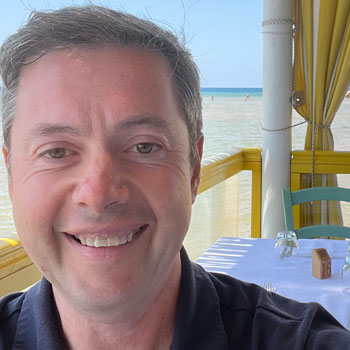
Wylie is director of the Civic Journalism Lab, a Newcastle University venture that acts as a collaboration and training hub for professional, community and student journalists. “In essence, we run events and produce podcasts for people who want to do journalism better,” says Wylie.
He is not your typical academic. “Just rising through the ranks of academia doesn’t interest me,” he reveals: “I get frustrated with how long it takes them to get to the point; 5,000 words to tell us something that we kind of already knew and could have been summed up in a sentence.”
He approached the university journalism department with his idea in 2017, and the rest is fast-becoming modern history.
“What I care about is the next generation of journalists. And I care about them getting skills that will enable them to get jobs and actually do well in their jobs. And so, I’ve always tried in my time at the university to make sure there were opportunities for our students to meet professional journalists, to learn from them.”
Just in the past year, there have been masterclasses on smartphone journalism, using Twitter for reporting and data journalism plus discussions on ‘Trauma, burnout and toxic abuse’, ‘Reporting the war in Ukraine’ and ‘Reporting Muslims and Islam’, plus a podcast series now on episode 39.
Wylie feels the Lab is fulfilling a function that industry has been poor to acknowledge. “Journalism, I think, has been very, very poor at seeing what is coming down the road and preparing for it,” he says.
“I remember at The Guardian, the training function was almost a joke. People would roll their eyes. Oh, I’ve got to spend half a day doing this course on sub-editing, or I’ve got to spend half a day doing something else. And it was kind of sneered at because we thought we knew what we were supposed to be doing and so on.
“We can bring people to come and do training with us, workshops, masterclasses, discussion panels, that will benefit our students, but alongside that, open our doors to community journalists, professional journalists, and just anyone really who’s got an interest in journalism to come along and learn alongside.”
As I emerge blinking into the brights lights of all that Newcastle has to offer, it’s difficult not feel energised. This old dog loves some new tricks…
This article was first published in InPublishing magazine. If you would like to be added to the free mailing list to receive the magazine, please register here.


